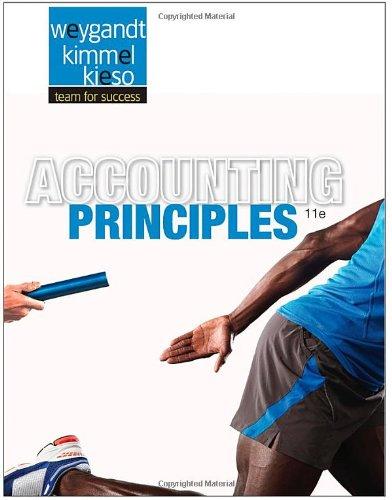Ken Iwig is the president, founder, and majority owner of Olathe Medical Corporation, an emerging medical technology
Question:
Ken Iwig is the president, founder, and majority owner of Olathe Medical Corporation, an emerging medical technology products company. Olathe is in dire need of additional capital to keep operating and to bring several promising products to final development, testing, and production. Ken, as owner of 51% of the outstanding stock, manages the company’s operations. He places heavy emphasis on research and development and on long-term growth. The other principal stockholder is Barb Lowery who, as a nonemployee investor, owns 40% of the stock. Barb would like to deemphasize the R&D functions and emphasize the marketing function, to maximize short-run sales and profits from existing products. She believes this strategy would raise the market price of Olathe’s stock.
All of Ken’s personal capital and borrowing power is tied up in his 51% stock ownership. He knows that any offering of additional shares of stock will dilute his controlling interest because he won’t be able to participate in such an issuance. But, Barb has money and would likely buy enough shares to gain control of Olathe. She then would dictate the company’s future direction, even if it meant replacing Ken as president and CEO.
The company already has considerable debt. Raising additional debt will be costly, will adversely affect Olathe’s credit rating, and will increase the company’s reported losses due to the growth in interest expense. Barb and the other minority stockholders express opposition to the assumption of additional debt, fearing the company will be pushed to the brink of bankruptcy.
Wanting to maintain his control and to preserve the direction of “his” company, Ken is doing everything to avoid a stock issuance. He is contemplating a large issuance of bonds, even if it means the bonds are issued with a high effective-interest rate.
Instructions
(a) Who are the stakeholders in this situation?
(b) What are the ethical issues in this case?
(c) What would you do if you were Ken?
A person, group or organization that has interest or concern in an organization. Stakeholders can affect or be affected by the organization's actions, objectives and policies. Some examples of key stakeholders are creditors, directors, employees,...
Step by Step Answer:

Accounting Principles
ISBN: 9781118566671
11th Edition
Authors: Jerry Weygandt, Paul Kimmel, Donald Kieso





